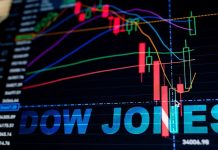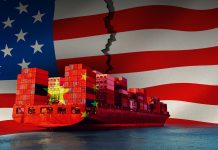Against a backdrop of geopolitical tensions, conflicting global sustainability regulations, and uncertain investment in renewable energy and decarbonization technologies, New York Climate Week (NYCW) 2025 took place in New York alongside the UN General Assembly the week of 22 September 2025.
While NYCW has always been considered one of the most significant events on the world climate stage, where new and groundbreaking coalitions, investments, technological innovations are announced and private and public sector actors converge to discuss the progress made on climate change and what remains to be done, just a few months ago, it was unclear what NYCW 2025 was going to look like.
It was rumored that organizations would send small delegations or skip NYCW altogether, while others said they would send much smaller teams than usual. In the end, NYCW 2025 was the largest, most well-attended NYCW to date, sending the message which would be echoed throughout the week: while organizations might not be talking about what they are doing, they have not stopped doing the work that needs to be done to advance their sustainability and climate goals – driven by a clear recognition that doing so is strategic and impacts the bottom line.
Sustainability no longer sits in a silo; it has come into its own, and is part of every business discussion with every business function because of the impact it has on the bottom line. From doubling down on energy transition, engaging with supply chains, improving emissions data and transparency, and focusing on building trust with stakeholders, a sense of optimism was palpable throughout the week. NYCW 2025 left participants energized, confident that we are heading in the right direction and confirmed the sense that, with collaboration and engagement, we will decarbonize and build strong and resilient businesses in the process.
Discussions across NYCW 2025 echoed several themes that impact business strategy and the creation of long term business value. Three key themes emerged: (i) businesses continue to advance their sustainability agenda, viewing sustainability as an integral part of business strategy and good for business, even in the current uncertain geopolitical and regulatory environment; (ii) the energy transition and decarbonization efforts remain essential, and are increasingly driven by innovation, the so-called “climate tech” solutions; (iii) the consumer is central to success.
What does this mean for business?
- Take advantage of the current regulatory pause to get your house in order; look at your Scope 1, 2 and 3 emissions and revisit how you collect data, how you set your targets, and how you engage with your supply chain.
- Engage directly with your suppliers to bring them along with you on your emissions reduction journey; small suppliers need your help to improve their own performance – whether through education, providing advisory services or organizing buyers’ clubs for energy purchases, since they often lack sufficient resources and financial surface to manage this on their own, yet they are key to our collective future.
- New technology enables tools to lower greenhouse gas emissions, capture atmospheric carbon, and support climate adaptation for businesses and ecosystems. By providing supplier-specific or advanced product-level data, technology will improve Scope 3 emissions tracking and help develop practical reduction strategies. Recent announcements at NYCW 2025 include grid modernization and AI solutions to better predict and address climate changes.
- And – as you refine your Scope 3 emissions, take a hard look at your current targets and whether or not they are realistic and achievable – consider rebaselining or revisiting your targets to something that is achievable. Getting this right is critical for the development of trust with your stakeholder base and will impact your business.
- Invest in your energy infrastructure and continue to look at how you can power your business with renewable energy; renewable energy is cost-effective, clean, abundant and secure, but it requires investment to distribute and store that energy efficiently so that it is fully reliable. The long-term financial advantage represented by using renewable energy to power your business goes directly to improving your bottom line.
But beyond this, building and maintaining trust with stakeholders, especially consumers, is essential. Communicate transparently and effectively about product claims, regulatory disclosures, and strategic decisions; and prioritize honesty over unrealistic promises to protect your business from market loss, accusations of greenwashing, and legal risks, ensuring continued relevance and resilience in a rapidly changing environment.
NYCW 2025 made it clear that the climate agenda is entering a decisive phase. Leaders from across the world will soon convene in Belém, Brazil for the 30th Conference of the Parties – the “implementation COP” – to focus on the concrete actions the public and private sectors need to take now to get back on track and reverse the effects of global warming. Energy and infrastructure will be on the agenda, as will adaptation – because in every scenario, we must take adaptation measures now to avoid catastrophic and irreversible harm.
As we adjust to the new world order and prepare for upcoming regulation, one thing is certain: the work we undertake today builds resilient businesses for tomorrow, preserving stakeholder value and our planet. This is not about business making sacrifices for the greater good – by aligning strategy with sustainability, business will reap the benefits from its investment and work. By Alyssa Auberger, Chief Sustainability Officer at Baker McKenzie, and Renata Amaral, partner with Trench Rossi Watanabe








































![From VVIP to GA: An Unforgettable Experience with G-DRAGON 2025 WORLD TOUR [Übermensch] at 8Wonder Ocean City](https://europeanbusinessmagazine.com/wp-content/uploads/2025/10/8Wonder-1-100x70.jpg)
